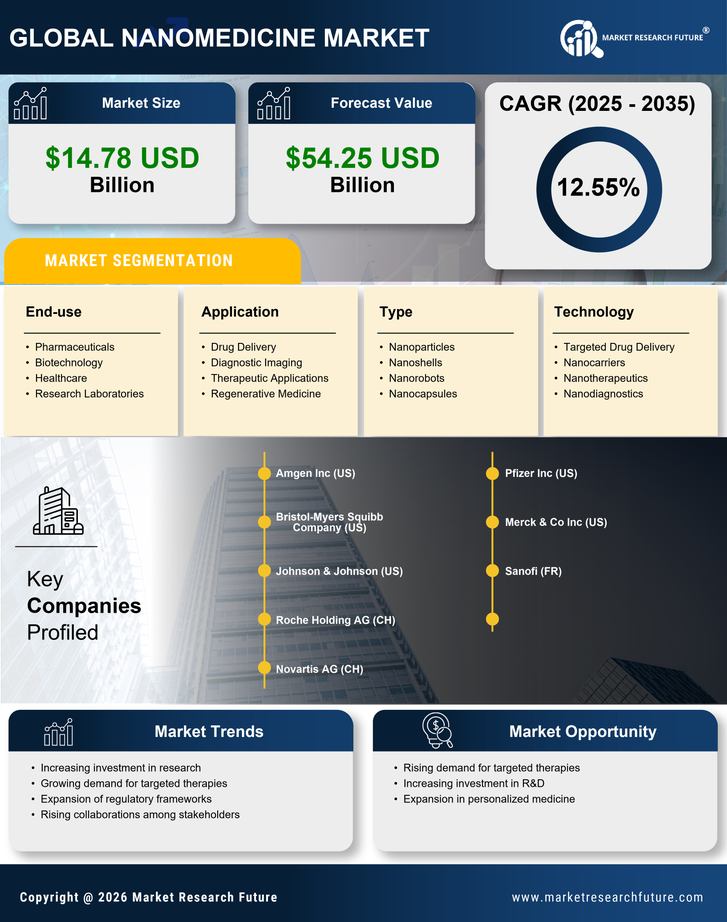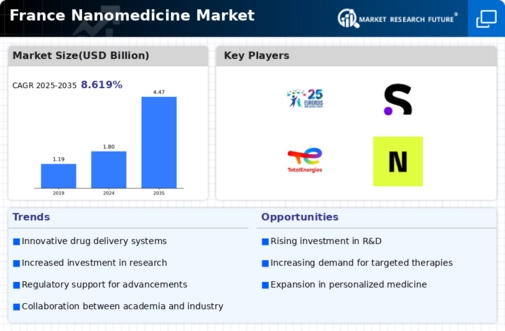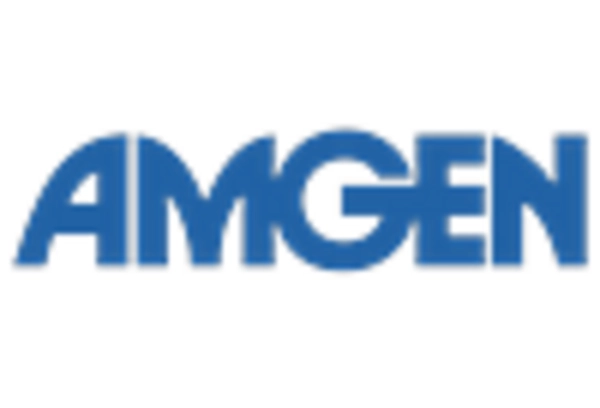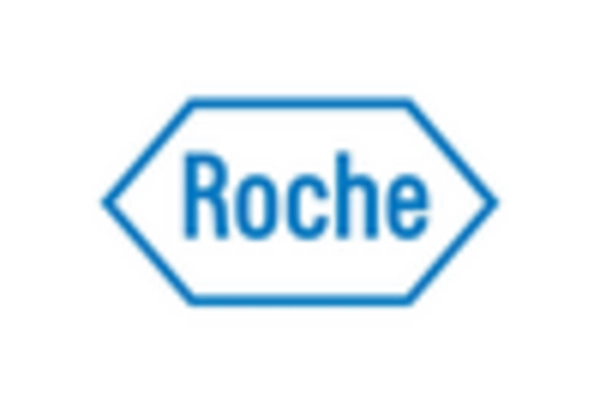Growing Aging Population
France's aging population is contributing to the rising demand for advanced medical treatments, particularly in the nanomedicine market. As the demographic shifts towards an older population, the prevalence of age-related diseases such as cancer and neurodegenerative disorders is increasing. This trend necessitates the development of innovative therapeutic solutions that can address complex health issues. The nanomedicine market is well-positioned to meet these needs, offering targeted therapies that can improve the quality of life for elderly patients. With projections indicating that the elderly population will reach 25% by 2030, the demand for nanomedicine solutions is likely to surge, driving market growth and innovation in the coming years.
Advancements in Nanotechnology
Technological innovations in nanotechnology are significantly influencing the nanomedicine market in France. The development of novel nanocarriers, such as liposomes and dendrimers, is enhancing drug delivery systems, making them more efficient and targeted. These advancements are not only improving the efficacy of existing treatments but also paving the way for new therapeutic modalities. The market is anticipated to grow at a CAGR of around 15% over the next five years, driven by these technological breakthroughs. Additionally, collaborations between academic institutions and industry players are fostering an environment of innovation, which is crucial for the evolution of the nanomedicine market. As research continues to unveil the potential of nanotechnology, the landscape of medical treatments is likely to transform.
Supportive Government Initiatives
The French government is actively promoting the development of the nanomedicine market through various initiatives and funding programs. By investing in research and development, the government aims to position France as a leader in nanomedicine innovation. This support is evident in the allocation of approximately €200 million for nanotechnology research in recent years. Such initiatives not only provide financial backing but also create a conducive environment for startups and established companies to thrive. The emphasis on public-private partnerships is likely to enhance collaboration, thereby accelerating the commercialization of nanomedicine products. As a result, the nanomedicine market is expected to benefit from increased investment and innovation, ultimately improving patient outcomes.
Rising Demand for Targeted Therapies
The increasing prevalence of chronic diseases in France is driving the demand for targeted therapies, which are a hallmark of the nanomedicine market. As healthcare providers seek more effective treatment options, the ability of nanomedicine to deliver drugs directly to affected cells is becoming increasingly appealing. This shift towards precision medicine is reflected in the market, which is projected to reach approximately €3 billion by 2026. The focus on minimizing side effects while maximizing therapeutic efficacy aligns with patient preferences, thereby propelling growth in the nanomedicine market. Furthermore, the integration of nanotechnology in drug formulation is expected to enhance bioavailability and therapeutic outcomes, further solidifying its role in modern healthcare.
Increased Focus on Preventive Healthcare
There is a notable shift towards preventive healthcare in France, which is influencing the nanomedicine market. As healthcare systems prioritize prevention over treatment, the role of nanomedicine in early diagnosis and monitoring becomes increasingly critical. Nanotechnology enables the development of advanced diagnostic tools that can detect diseases at their nascent stages, thereby facilitating timely interventions. This proactive approach is expected to enhance patient outcomes and reduce healthcare costs in the long run. The market for diagnostic applications in nanomedicine is projected to grow significantly, reflecting the broader trend towards preventive healthcare. As awareness of the benefits of early detection rises, the nanomedicine market is likely to expand, driven by innovations in diagnostic technologies.

















